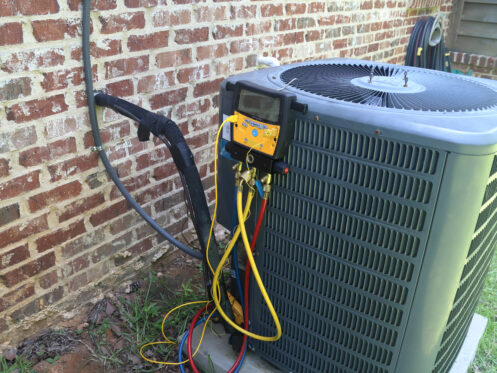Littleton, CO, experiences a wide range of temperatures and weather conditions throughout the year. As a city located near the foothills of the Rocky Mountains, Littleton can see everything from hot summer days over 90 degrees Fahrenheit to frigid winter storms with temperatures below zero. This diverse and often extreme weather causes problems for residents when it comes to efficiently heating and cooling their homes.
The city’s variable mountain climate puts HVAC systems under considerable strain, leading to common issues like inadequate heating or cooling as systems fail to keep pace with extreme temperature swings. With rapid changes in temperature across the seasons, HVAC systems must be able to quickly adapt to changing conditions.
Here are some suggestions for ways to optimize your system to get better performance year-round.
Spring
Spring is the ideal time to perform comprehensive maintenance checks in advance of the cooling season. A professional can thoroughly clean air ducts to remove any mold or debris accumulation from winter humidity. Change air filters monthly once higher spring temperatures increase airborne pollen and dust. When buying filters, consider a higher MERV rating for cleaner indoor air quality. Just make sure that your equipment can handle the restricted airflow.
Check the insulation levels in attics and exposed walls, upgrading to R-30 fiberglass or blown-in cellulose to reduce summertime heat transfer. This is also a good time to schedule a professional maintenance visit to ensure your cooling system is ready for the peak of summer.
Summer
Reset your smart or programmable thermostat to 72–78° Fahrenheit when your home is occupied. You can set slightly warmer temperatures when everyone is away at work or on vacation. Install ceiling fans to redistribute warm air and improve comfort while lightening the load on your HVAC system.
Outdoor condenser units must be kept clear of grass clippings, leaves, and debris that impede airflow. You should clean the cages and vents monthly. Trim back bushes or vines growing near the condenser. To improve overall performance, consider upgrading to a zoned control system that allows different areas of the home to be cooled independently based on usage for maximum efficiency.
Fall
As the summer heat passes, it is time to switch focus to winter preparation. Schedule professional servicing in September or October to have your heating system components checked and calibrated for optimal functionality. Examine your home for air leaks that may be allowing cold drafts to occur. You can also apply new weatherstripping around windows and door frames to cut down on heat loss. Other places to insulate include attic hatches and sealing cracks in home siding or around foundations.
Clean furnace filters, stock up on replacements, and ensure adequate humidity levels indoors once heating begins.
Winter
Furnace filters should be changed more frequently during winter operations. This is because of additional run time as well as an increase in interior dust during this time of year. Adjust your thermostat to a lower temperature when you are away or sleeping. This will conserve heat.
Monitor humidity levels, adding a standalone or whole-home humidifier as needed. Check for cold air leaks in corners or along baseboards, indicating insufficient insulation. Adding insulating sleeves or heat tape to exposed pipes can prevent freezing and rupture disasters. This can occur due to Colorado winter temperatures remaining frigid both day and night.
Benefits of Optimizing Your HVAC System
Energy Efficiency
Optimized HVAC systems run with greater efficiency by delivering precise heating or cooling capacity. This saves significantly on electricity bills compared to an outdated system.
Improved Comfort
Tailored optimization provides consistent, comfortable temperatures inside the home. This is consistent based on varying outdoor conditions.
Extended System Lifespan
Well-maintained equipment lasts considerably longer without breaking down compared to neglected systems. Also, fewer major repairs are needed over time.
Enhanced Air Quality
Upgraded filters and proper airflow in optimized systems remove more dust, pollen, and irritants, creating healthier indoor air.
Cost Savings
The combined boost in energy efficiency, equipment longevity, and improved comfort adds up to substantial cost savings.
By running more efficiently with less strain on components, optimized HVAC systems create more comfortable environments while lasting longer and requiring fewer emergency repairs.
Get Help from a Professional
Call Simply Mechanical today for HVAC solutions tailored to your unique heating and cooling challenges. Our skilled technicians have over 30 years of industry experience and repair and maintain all types of HVAC systems. We can install new systems, provide routine maintenance, and take care of emergency repairs for all heating and cooling equipment. Schedule an appointment with Simply Mechanical today.


